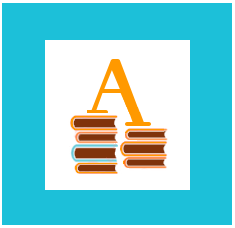Antiguan children's author and children's book club volunteer Joanne C. Hillhouse reflects on what she has learned about child readers and reading with children.
***
 |
| Hillhouse leading a youth writing camp session |
Is this bad or good?
On the one hand, converting it to something more culturally relevant – cornmeal pap, perhaps –might have grounded it for me. But then, again, reading, watching, or listening to things we’ve never heard before is an opportunity to learn. To this day, I’m learning new words and discovering the many things I only thought I knew. How much more magical must the discovery of new words and things be for children, who are naturally curious and capable of soaking up knowledge like a sponge soaks up liquid…though hopefully not to be squeezed out as easily.
But what if we never ask? I did so only very recently after all, after wondering why we didn’t have more of these nursery rhymes relevant to our culture so that from a very young age, our wee ones are soaking up our culture; and what the hell are curds and whey, anyway? The best explanation I got, on voicing this latter question, included a visual of cottage cheese; the curd being the parts that clump together, whey being the more fluid parts that resist clumping…or something.
It got me thinking about the many things we, even the more curious among us, gloss over, never seeking explanation, and so not learning what we don’t know.
I’m tutoring a high schooler in English at the moment, and during a recent reading session I could tell he was just calling words. I started asking questions to test his comprehension; and though this story, unlike "Little Ms. Muffet" was set in the Caribbean, I realized there was much he wasn’t getting. There was a simile, for instance, that used the word molasses but it was flying over his head because, as he confessed when asked, he didn’t know what molasses was. So we spent some time with me moving from sugar cane plantations to maple trees tapped for syrup and back, trying to give him a visual of how molasses is meant to move. We had to repeat this process a few more times; a kernel, for instance is that thing left in the bottom of the popcorn bag unpopped, i.e. a small seed or something that’s just the very small beginning of something.
Even as I tried to help him learn the things he didn’t know by relating them to the things he did know, I found myself wondering how often he did that; just kind of moved past the words he didn’t fully comprehend while reading. And if that’s what he routinely did, no wonder he was just calling words; the story held no meaning to him, and was certainly not engaging his imagination.
I’ve seen this with kids in the Cushion Club reading club with which I’ve volunteered for many years. There would be the occasional word substitution that completely changed the meaning, took the story off track. How could you stay in the story if in a single substitution you’d move the story from Sutherlands to Surrey; that is from one place with a unique set of environmental realities to another with a completely different set of realities? And the thing you realize when you go over it is that the word substitution isn’t always deliberate, nor does it always reflect unfamiliarity with the word on the page; it’s not for nothing that I’ve had to tell everyone of my nieces or nephews at some point: slow down, take your time, think about it. Often they know it but rush to answer before searching for the knowledge of it somewhere in their head. At which point you end up with misspellings or word substitutions.
But sometimes they just don’t know and they don’t know that they don’t know. The thing that reading with children should encourage them to do, though, is think, wonder, turn things over in their minds, and come out on the other end knowing more, even if it’s just on an emotional level, than they did before. But sometimes we have to prompt them as we read along…or even as we watch something on the TV together. Do you know/understand what that is?
We might be surprised at the things we think they know/understand that they really don’t.
After all, I’ve been reading and writing for years, and only just learned what Ms. Muffet was eating. I still have no idea how it tastes though.
-
About the Author
Joanne C. Hillhouse is the author of the children's and young adult novellas, The Boy from Willow Bend and Dancing Nude in the Moonlight respectively, and the picturebook Fish Outta Water. She runs the Wadadli Pen youth writing programme in Antigua and Barbuda, as well as the Jhohadli Summer Youth Writing Project. She blogs at jhohadli.wordpress.com and wadadlipen.wordpress.com














0 comments:
Post a Comment